All Stories
-
 Chemistry
ChemistryChemists have unlocked the secrets of long-lasting Roman concrete
By searching ancient texts and ruins, scientists found a concrete recipe that could make buildings stronger — and help address climate change.
-
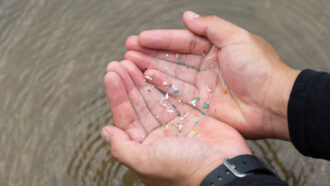 Environment
EnvironmentSea life may suffer as plastic bits alter metals in water
This interplay between plastics and metals could affect how each affects the environment — and suggests opportunities for controlling their risks.
-
 Animals
AnimalsLet’s learn about frogs
Frogs are a fascinating bunch of amphibians. Unfortunately, they’re also dying off in huge numbers.
-
 Computing
ComputingScientists Say: Hardware and Software
Hardware includes all the physical parts of a device you can hold. Software includes all the coded instructions to make that hardware work.
-
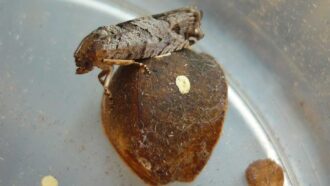 Animals
AnimalsRandom hops always bring jumping beans to shade — eventually
It’s not fast, but jumping beans use randomness to maximize their chances of getting out of the sun’s heat.
-
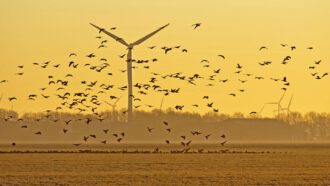 Climate
ClimateHere’s how to increase clean energy without harming wildlife
Wind farms, solar panels and more take up land and may harm wildlife. Researchers are working to resolve this conflict.
-

These lemurs take nose-picking to a new level
A nose-picking aye-aye’s spindly middle digit probably pokes all the way into the back of the throat, CT scans show.
By Maria Temming and JoAnna Wendel -
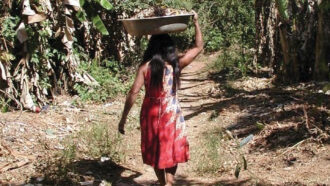 Agriculture
AgricultureNative Amazonians make rich soils — and ancient people may have too
Modern Amazonians make nutrient-rich soil from ash, food scraps and burns. The soil strongly resembles ancient “dark earth” found in the region.
By Freda Kreier -
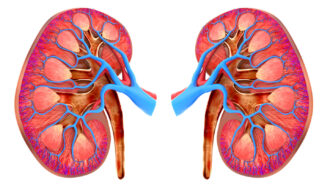 Health & Medicine
Health & MedicineScientists Say: Kidney
The kidneys remove waste and excess water from the blood, forming urine.
-
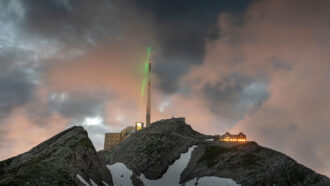 Physics
PhysicsA powerful laser can control the paths that lightning takes
In a mountaintop experiment, a laser beamed at the sky created a virtual lightning rod that snagged several bolts.
-
 Psychology
PsychologyThere’s a real upside to knowing you could be wrong
We’re often certain that what we believe is true. But questioning those beliefs, as Galileo did, can help us learn better — and even perform better on tests.
By Jane Palmer -
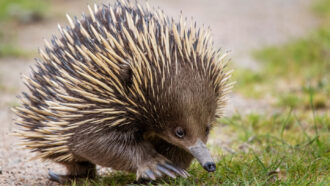 Animals
AnimalsWhen it’s hot, echidnas blow snot bubbles to cool off
These spiky Australian mammals have a trick to moisten their noses, allowing them to survive hot temperatures that should kill them.
By Elise Cutts